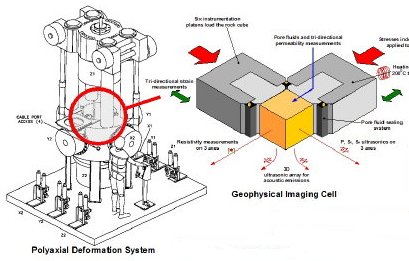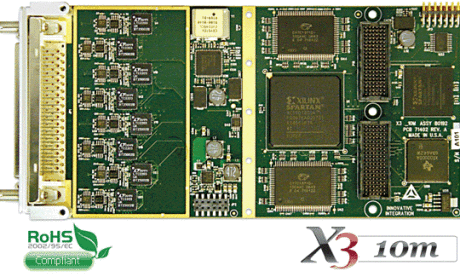Related Products
Skills Used
- Windows programming with Embarcadero C++
- Real time programming under Windows
- Use of Intel Performance Primitives
- VHDL design
- DSP
Seismology Lab
In 2012 we adapted our distributed data acquisition software to support Lab Testing for Seismology Experiments. Seismology scientists and engineers are able to scale up the earths natural compression on rocks due to plate movement by crushing a rock sample in a hydraulic press. Scaling down the rock size has the effect of scaling up the bandwidth of the pulses emitted during fracture and a data acquisition system of 10MSPS samplerate is required. The rock sample is covered in piezo sensors, requiring upto 32 channels of analogue to digital conversion.
Intelligent Trigger
The experiments can be run over hours, as pressure is slowly increased by hydraulic jacks. The fracture events can be very short and so to avoid unnecessarily large datasets, a trigger circuit is used to determine when samples should be recorded. The trigger system needs to take into account not only every channels realtime value, but also the values of other channels since real events will be detected on all Adc channels. The X3-10M board was selected as ideal for the application since it includes an FPGA which is well suited to trigger applications.
The FPGA (Spartan3A DSP 1800k gate) was also used to implement high pass filtering on the samples to effectively make the inputs AC coupled.



